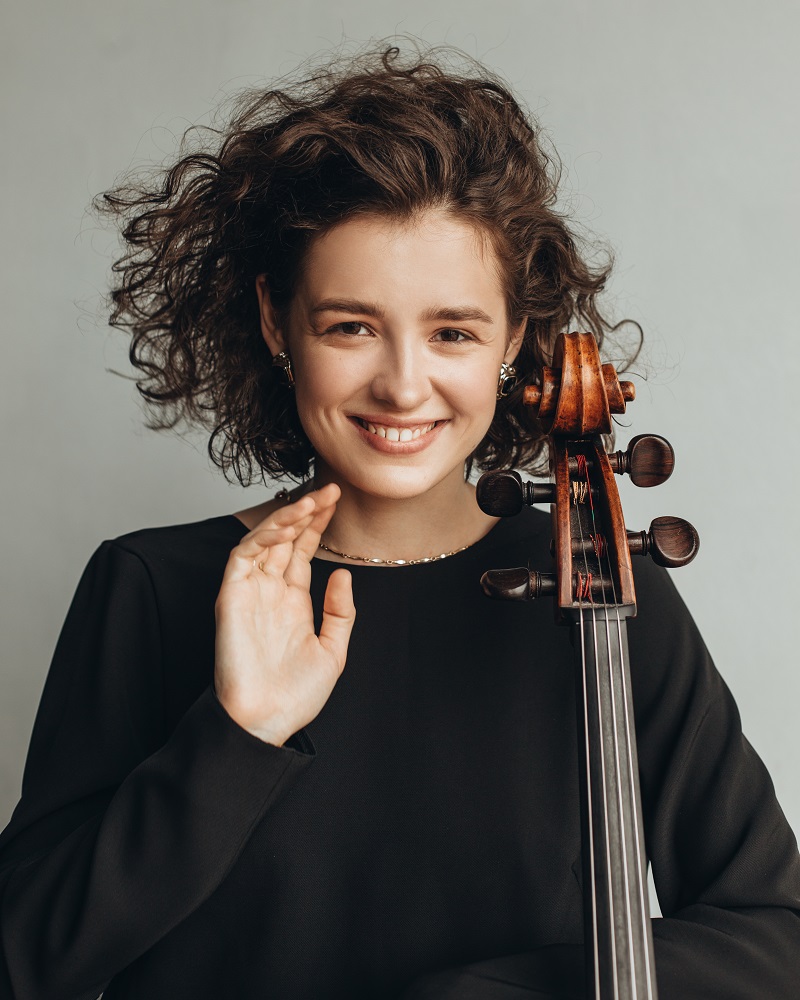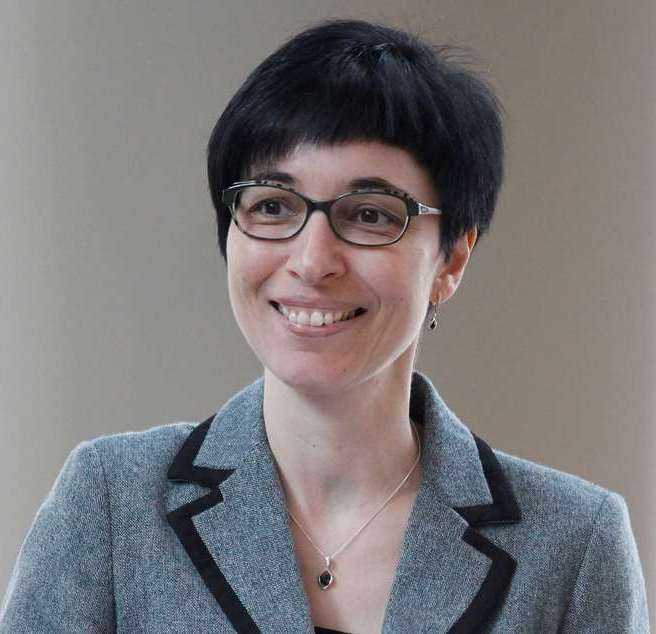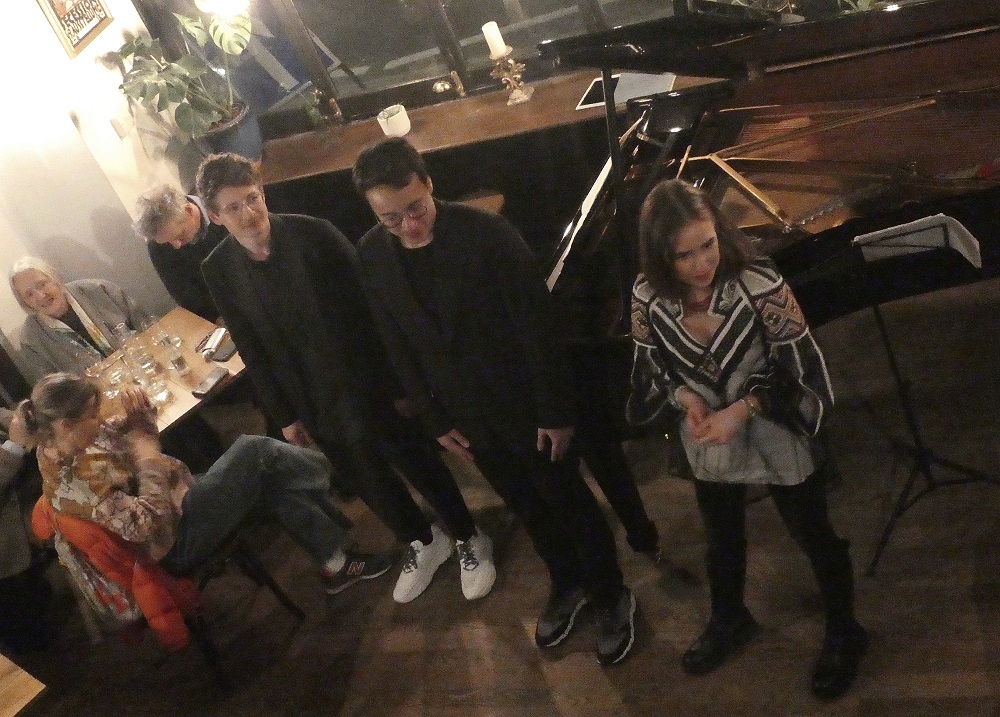National sensitivities are running understandably high right now in the thick of an ever-escalating aggression. What a shame that the Southbank Centre has excluded Russian artists from performing alongside British and Ukrainian performers to bring a message of peace through the arts in their upcoming fundraiser. Not so "Dance for Ukraine" at the London Coliseum, including Natalia Osipova in its line-up.
Other cases of discrimination are emerging. In Switzerland the Ittingen Charterhouse has just cancelled a cello-and-piano recital, claiming that "the reason is the Russian nationality of the artist, but not the young musician herself. Anastasia Kobekina [pictured below by Julia Altukhova] vehemently condemns Russia's war against Ukraine” – and yet the organisation feels it needs to make a stand.
 Two international piano competitions have excluded Russian-born competitors. One young pianist, Hungarian Ádám Balogh, has withdrawn from the Honens Competition, stating: “I do not understand what this decision achieves other than making the divisions between people who might even think the same, even deeper” Balogh was one of 14 entrants who “wrote long letters suggesting alternatives, possible clauses to this ban” but who were all stonewalled. He also explains in a detailed statement that another reason would be unfairness: “suddenly removing 6 out of 50 people, significantly affects this competition. It doesn’t feel right for me personally to ignore; my chances just got higher.”
Two international piano competitions have excluded Russian-born competitors. One young pianist, Hungarian Ádám Balogh, has withdrawn from the Honens Competition, stating: “I do not understand what this decision achieves other than making the divisions between people who might even think the same, even deeper” Balogh was one of 14 entrants who “wrote long letters suggesting alternatives, possible clauses to this ban” but who were all stonewalled. He also explains in a detailed statement that another reason would be unfairness: “suddenly removing 6 out of 50 people, significantly affects this competition. It doesn’t feel right for me personally to ignore; my chances just got higher.”
It seems that the media is having to search harder for instances of bans on works by Russian composers who would unquestionably have been against this invasion. The situation with the Cardiff Philharmonic turned out to be more nuanced than it first appeared. Yes, the orchestra substituted an all-Tchaikovsky programme with works by non-Russians. But the 1812 Overture and Marche slave would have been inappropriate. Not so, in my view, his Second Symphony. The fact that it was later dubbed (and not by Tchaikovsky) the “Little Russian”, in disparaging reference to Ukraine’s then-status as part of the Russian Empire, is unfortunate; in fact it celebrates three Ukrainian folksongs. An announcement to that effect would have saved the second half of the programme.
Earlier this month the Association of British Orchestras made a statement clearly outlining its support of Ukraine, and the rightness of disassociating from Kremlin-linked artists and organisations, while making it clear that no Russian artist mindful of family and friends at home should be forced into making a statement. It was especially clear on repertoire: “Works by Russian composers are intrinsic to the historical canon of Western classical music. We do not support a blanket boycott of these works, just as we do not boycott works created by composers who lived in other countries in other times that were also subject to international condemnation. As an example, British orchestras performed works by German composers throughout the First and Second World Wars. Our members will, however, take steps to place Russian compositions in their historical context, if relevant, and communicate this to their audience.”
So the Russian repertoire should remain intact, And righty so when so much of it is deeply pertinent to our time: that means most of Shostakovich and operas like Musorgsky’s Boris Godunov, recently withdrawn from the schedule in Poland (as a commentator pointed out, the last words of Pushkin’s original drama, a stage direction, are “narod molchit” – “the people remain silent” – and we need the opposite of that right now). The Verbier Festival, having removed Valery Gergiev from centre-stage (as in my opinion it should have done from 2013 onwards), continues its all-Russian mini-festival with Gianandrea Noseda conducting – though pianist Mikhail Pletnev, with a very questionable history, still features.
 If Ukrainian works can be inserted into concert programmes, they will be: full marks to the London Philharmonic Orchestra and its enterprising Artistic Director Elena Dubinets (pictured right by Ben Vanhouten) for seeing to it that Silvestrov’s Fourth Symphony now starts this evening’s programme (would that I could be there, but the Czech Philharmonic calls over at the Barbican). The playing of the Ukrainian national anthem at the start of concerts and operatic performances now seems commonplace; some spectators find it tokenist, but most are happy to see a great country honoured.
If Ukrainian works can be inserted into concert programmes, they will be: full marks to the London Philharmonic Orchestra and its enterprising Artistic Director Elena Dubinets (pictured right by Ben Vanhouten) for seeing to it that Silvestrov’s Fourth Symphony now starts this evening’s programme (would that I could be there, but the Czech Philharmonic calls over at the Barbican). The playing of the Ukrainian national anthem at the start of concerts and operatic performances now seems commonplace; some spectators find it tokenist, but most are happy to see a great country honoured.
Fundraisers for Ukraine are now getting off the ground. It takes time to assemble performers. Easiest if we’re talking about chamber concerts and last night the Fidelio Café, first off the marks during lockdown in the summer of 2020, played host to the top piano-duo artistic couple living in London, Russian-born Pavel Kolesnikov and Samson Tsoy (who moved from Kazakhstan to Russia at the age of eight). The cost of admittance to their recital supporting the Britist Red Cross's DEC Ukraine Humanitarian appeal was a snip at £20 a ticket (all the more reason to add further donations), and could have been sold out four times over. They were joined by one of the world’s top (three?) viola players, Lawrence Power, and a Ukrainian violinist, Aleksey Semenenko, had been scheduled. Sadly Semenenko found himself unable to leave Kyiv. There was an eloquent speech from Valeria Charlamova, who has lived here for the past six years but whose family is still in Lviv; in conversation with her afterwards, I found she has a sharp and shrewd appraisal of how support is working now. Charlamova pictured below with Kolesnikov and Tsoy.

Kolesnikov’s solo was simply colossal: Franck’s Prelude, Chorale and Fugue, rolling around like the deepest of meditations before the Bach multiplied (and not exactly romanticised) of its fugal journey. Tsoy played two of Schubert’s D899 Impromptus, Nos. 3 and 2. I always think of them as an essential sequence, No. 2 starting in E flat major and (always unusual) ending in an angry minor, to be softened by the balm of the G flat major reverie, but the reversal worked: fury was the ultimate keynote here, in tune with the time. And however many times one hears this duo in the great Fantaisie of Schubert’s last year, it can never be too often: again in context, the bedrock of persistent sadness in the returning main theme, never over-sentimentalised, seemed like the right way to end. Officially, that is, for the elevational balm of Faure’s “Le jardin de Dolly” left us in a calmer mood. You can be sure that this remarkable pair have more ways to help Ukraine up their sleeves – and lucky anyone who jumps in to get a ticket.














Add comment